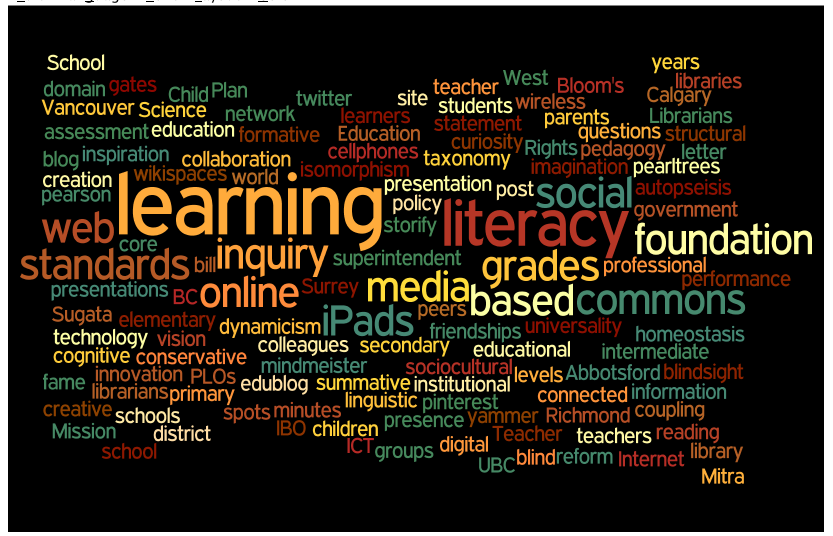To highlight all the new learning we have done in this course, all 30 of us, I have created a Wordle. I have tried to include all the new terminology covered these past 3 weeks:
In contrast, here is the Wordle I made the first day, after our introductions:
I have a few videos to sum up my take on ICT in Teacher Librarianship. They are both focused on educational reform and support technology and inquiry, while advocating for teacher presence in education.
What is 21st Century Education? (posted Mar 2012, visited July 2013)
21st Century Education in New Brunswick (posted April 2010, visited July 2013)
Education Edvolution (posted May 2011, visited July 2013)
Thanks to this course, I have now found a reason to use Twitter! At the moment, I have half as many followers as I do followees, and checking my twitter feed at least once a day.
I never realized we are such a communication-needy society! As individuals, we spend more time (and money) engaged in communication technology than most other forms of technology. Communication does not need technology to be successful, but it certainly expands our network. Our need to connect kind of mirrors our need to ‘travel’.
Reflections on my job as a learning leader: literacy expert, collaborator, connector
-I need to connect, share, and create with more teaching tools to boost my ICT skills
-I need to provide collaborative space on my library website (for teachers and students)
-I need to continue to provide literature rich experiences for my students, both individually and classroom wide (Shelfari, Battle of the Books – thanks Lisa!)
Reflections on ICT
Wlkiblogging – Not currently a word, but if it were…. The collective act of many people quickly sharing ideas on blogs, during presentations. This is what we have been doing during LIBE477B 951 presentations via the Blog Forum.


